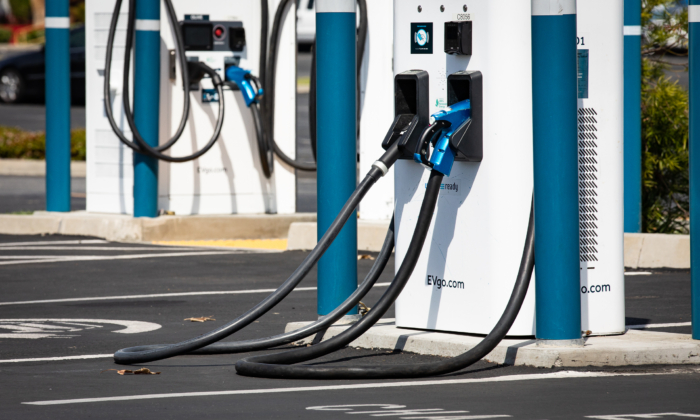Commentary
The notion that electric vehicles are the ultimate solution to combatting “climate change” seems to have hit a roadblock in reality.
During the interview, Margaret Brennan mentioned former President Trump’s criticism of President Biden’s push for electric vehicles, citing low consumer demand. She pointed out that only 269,000 electric vehicles were sold in the U.S. market out of 4 million total vehicle purchases, representing just 6.7% of sales in the first quarter of 2024, as reported by Cox Automotive.
Mr. Buttigieg defended the administration’s efforts, highlighting the need for more affordable electric vehicles and a robust charging infrastructure across the country. He emphasized the importance of expanding the charging network to make electric vehicles more accessible to all Americans.
A Gramscian Childhood
Buttigieg shared his upbringing in the industrial Midwest, growing up near abandoned factories from car companies that had gone out of business. He failed to mention that his father was a left-wing Marxist professor at the University of Notre Dame, deeply involved in the study of Antonio Gramsci’s Marxist philosophy.
Despite Buttigieg’s assurances, Margaret Brennan raised concerns about the slow progress in building charging stations with the federal investment allocated for this purpose. She questioned the administration’s ability to meet its goal of half a million chargers by the end of the decade, given the limited number of stations currently in operation.
On June 27, 2024, the United States has seen a significant increase in publicly accessible electric vehicle charging stations, surpassing 61,000 stations with Level 2 or DC Fast chargers. This marks a more than twofold increase from the approximately 29,000 stations available in 2020. In comparison, there are an estimated 145,000 gasoline fueling stations across the country.
California leads the way in EV charging infrastructure, but despite having the most charging stations in any state, there is a shortage of chargers for the over 1.2 million electric vehicles registered to California residents. With one public port for every 29 EVs, California ranks 49th in charging accessibility.
Transportation Secretary Pete Buttigieg likened charging an EV to charging a phone, highlighting the increasing affordability of EVs compared to gas-powered cars. However, concerns were raised about President Biden’s tariffs on EVs from China, impacting the industry’s growth.
The interview with Buttigieg sparked criticism on social media and in news outlets, questioning the effectiveness of EV initiatives. This backlash may hinder efforts to promote EV adoption. California’s mandate for 100 percent zero-emission vehicle sales by 2035 faces challenges in light of these developments.
The views expressed in this article are the author’s opinions and may not align with those of The Epoch Times. Please rewrite the following sentence:
Original: The cat was very cute and fluffy.
Rewritten: The adorable cat had a soft and fluffy coat.
Source link





